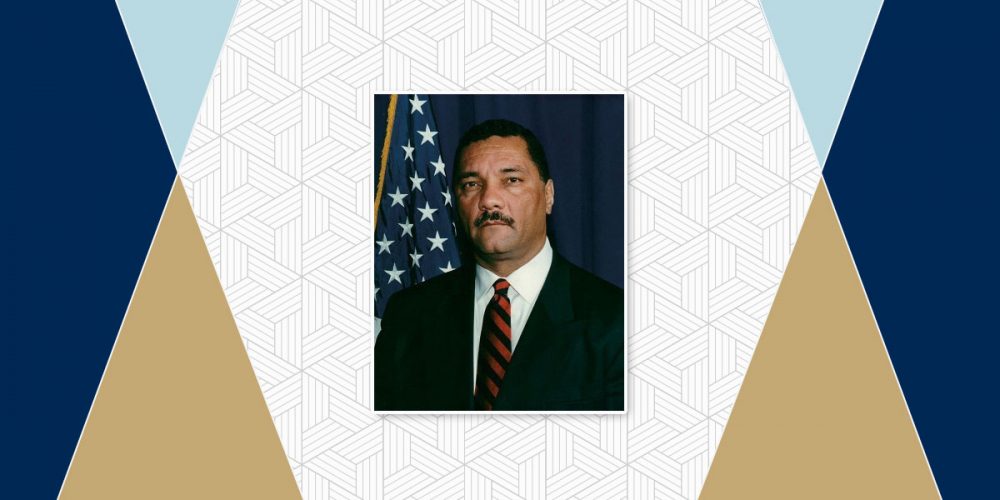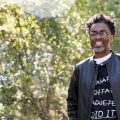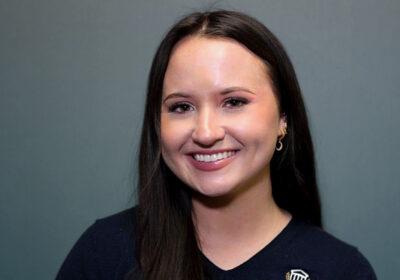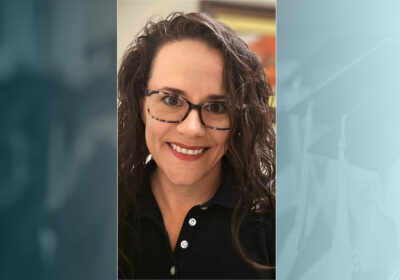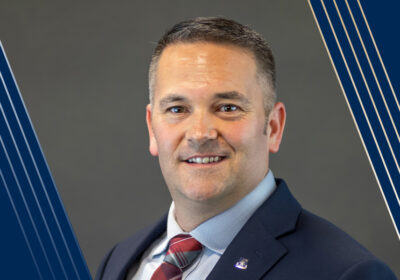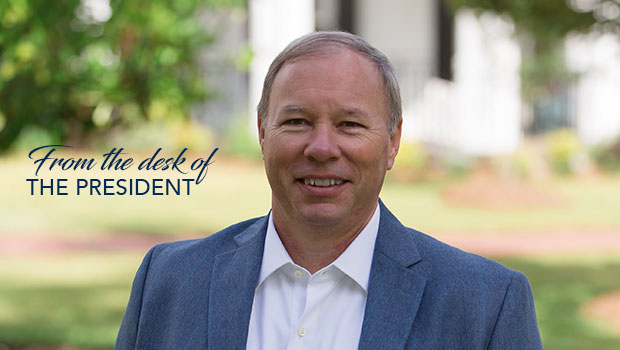Black History Month recognizes the achievements of Black Americans and their contributions and more to the economic, political and social tapestry of the United States. To honor this special month, CSU would like to recognize some of the achievements of a few of our Black faculty members who have excelled in their communities and within their respective fields.
What a 16-year-old Mark Logan knew about police officers was enough for him to know he never wanted to be a cop. It wasn’t until witnessing a robbery with his own eyes that he changed his perspective. From there, he set out to lead by example in a career he never thought he’d pursue.
“I told people you couldn’t pay me a million dollars to be a cop,” he said. “I was working in the fast-food industry and talked with a private security guard who told me that I could make one dollar more an hour employed in private security. I did not pass on the opportunity for more money. Through my experiences in private security, and mainly dealing with retail and food service security, I stopped a robbery in progress at a fast-food restaurant where I ended up having to fire my weapon and stop the robbers in the middle of the night. Lo and behold, those who came to help me were Detroit police officers. At that time, I realized that they were there to help. I ended up seeing the other side of the coin as it relates to police community relations and the purpose of law enforcement.”
During his career at the Detroit Police Department, Mark performed the duties of an officer and got involved in a lot of proactive police work cases. After eight years with the department, he received a new opportunity that would be where he spent his next 27 years of service.
“I get a call from the Bureau of Alcohol, Tobacco, Firearms and Explosives (ATF) asking me if I was interested in being interviewed for a position in the federal government,” he said. “The person in charge asked me a question saying if I were to get the job, what would I like to do in the future. I’m nervous and all, and I said, ‘Well, I would like to have your job.’ Apparently, that was the right answer.”
As Mark settled into his new position, he was encouraged to get his degree. Throughout his time with ATF, he earned his bachelor’s degree in business administration followed by a master’s degree in education administration and supervision in 2008. It was around that time he became the assistant director of training and professional development.
As an assistant director, his job was offering and presenting federal, state, local and foreign law enforcement professionals advanced training ranging from criminal investigation techniques to executive development, along with security/ law enforcement theory and application.
“My philosophy was to do whatever I can to help my employees grow, because when they grow, I succeed,” he said. “I wanted to make sure that all resources were available to them to help them and make the job more functional regardless of their background.”
In 2010, Mark retired from the bureau. Little did he know, there was much more in store for his career.
“Just before retirement, I got a phone call from representatives with George Washington University to ask me about giving a lecture in criminal justice that I did. Then, they offered me a position as an adjunct both in classroom and online,” he said. “Then I get a call about an opportunity to teach for the University of Phoenix and I accepted that. I taught with the University of Phoenix for several years. While there, I received a Faculty of the Year award, and I was elevated to the position of lead faculty and then assistant dean within the College of Criminal Justice and Security. From that time, I did that and then I started working on my Ph.D.”
Dr. Mark Logan completed his doctorate degree in 2019 and holds a Ph.D. in public safety. Oddly enough, it was at his graduation ceremony where he was introduced to what would be his current job—a professor at Columbia Southern University.
“As I’m sitting there waiting to go up across the stage and be recognized for the Ph.D. in public safety, I’m sitting next to a person, a CSU faculty member, and they were telling me about the different things of Columbia Southern and that there was a possibility that they may be hiring adjunct faculty for criminal justice. So, I applied for the position and now I am here.”
In addition to being an adjunct faculty member at CSU, Mark took on the role of lead faculty for the graduate criminal justice programs for the College of Safety and Emergency Services in 2021. His answer to the question of the most rewarding part of his job is the same as it was when he first started his career—helping people grow.
“I had a student that was slowing down on performance and all and got in a conversation with the person. I brought up that we can’t stand for procrastination because you’re better than that. We carried on our conversation and then at the end the person told me I sounded like his father. That was rewarding to me that it was interpreted that way. I told him let’s work on this, we’re working this together and I’m here for you. I want them to know they are better than the negative.”
He currently holds membership with the International Association of Chiefs of Police, American Society for Industrial Security International, the National Organization of Black Law Enforcement Executives, Police Executive Research Forum and the FBI National Executive Institute Associates.
“I sit in the Northern Virginia chapter of Noble, and I chair the scholarship committee where we award several thousand dollars to high school seniors and current college students that applied for our chapter scholarship program,” he said. As a servant in the church, I also participate in the food sharing program in Northern Virginia.”
Although his service and dedication to criminal justice throughout his life is evident, Mark says it’s important that everyone knows he didn’t get to where he is now without hard work and believing in himself. It’s that same advice he passes on to his students to this day.
“Do what’s right when nobody else is looking,” he said. “God didn’t make any junk. God gives you these different talents, and it’s on you to work those out for the good. Be grateful for what you have and the work that you can share with other people. If you feel that you end up at the end of your rope, tie a knot and just hang on.”
Disclaimer: These testimonials may not reflect the experience of all CSU students.
Multiple factors, including prior experience, geography, and degree field, affect career outcomes.
CSU does not guarantee a job, promotion, salary increase, eligibility for a position, or other career growth.

